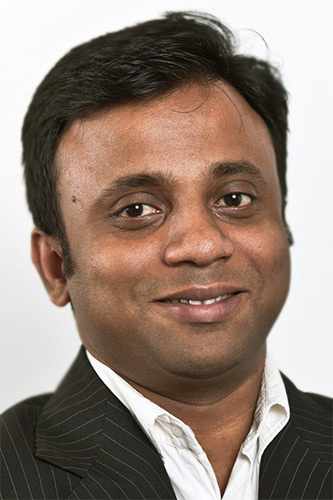

During a talk at the RSA Conference, security expert Bruce Schneier called for the creation of a new government agency that focuses on internet of things regulation, arguing that "the risks are too great, and the stakes are too high" to do nothing. more
 As the federal government grapples with Internet-connected devices and applications that make up the Internet of Things (IoT), the National Institute of Standards and Technology (NIST) is forging ahead to provide "technical leadership" for "the operation, trustworthiness, and lifecycle of IoT". Such efforts complement - and contrast - recent policy efforts at the National Telecommunications and Information Administration (NTIA) and elsewhere to promote IoT innovation while addressing security, privacy, and interoperability. more
As the federal government grapples with Internet-connected devices and applications that make up the Internet of Things (IoT), the National Institute of Standards and Technology (NIST) is forging ahead to provide "technical leadership" for "the operation, trustworthiness, and lifecycle of IoT". Such efforts complement - and contrast - recent policy efforts at the National Telecommunications and Information Administration (NTIA) and elsewhere to promote IoT innovation while addressing security, privacy, and interoperability. more
 While conventional cyber attacks are evolving at breakneck speed, the world is witnessing the rise of a new generation of political, ideological, religious, terror and destruction motivated "Poli-Cyber™" threats. These are attacks perpetrated or inspired by extremists' groups such as ISIS/Daesh, rogue states, national intelligence services and their proxies. They are breaching organizations and governments daily, and no one is immune. more
While conventional cyber attacks are evolving at breakneck speed, the world is witnessing the rise of a new generation of political, ideological, religious, terror and destruction motivated "Poli-Cyber™" threats. These are attacks perpetrated or inspired by extremists' groups such as ISIS/Daesh, rogue states, national intelligence services and their proxies. They are breaching organizations and governments daily, and no one is immune. more
The frequency of DDoS attacks has risen by 40% year on year while the duration of attacks decreased with 77% lasting ten minutes or less, according to a new report released by Corero Network Security. more
As we increasingly move towards an IoT world, vendors of safety-critical devices will be patching their systems just as regularly as phone and computer vendors do now. Researchers warn that many regulators who previously thought only in terms of safety will have to start thinking of security as well. more
 A great deal of discussion is taking place about topics such as the digital economy, sharing economy and networked economy. Obviously these are concepts rather than being well-defined, but they are being used by the various players in the market to argue for or against certain developments. For example, in some of the broadband debates around the world, the digital economy is the key reason why national broadband infrastructure gets developed. more
A great deal of discussion is taking place about topics such as the digital economy, sharing economy and networked economy. Obviously these are concepts rather than being well-defined, but they are being used by the various players in the market to argue for or against certain developments. For example, in some of the broadband debates around the world, the digital economy is the key reason why national broadband infrastructure gets developed. more
 As the name indicates, the Internet of Things (IoT) should be an extension of the Internet. However, in reality, most IoT applications are Siloed infrastructures. We will analyse the main challenges in the IoT and explain how an Internet registry could be evolved to provide a secure and privacy integrated Identity and access management service for IoT. more
As the name indicates, the Internet of Things (IoT) should be an extension of the Internet. However, in reality, most IoT applications are Siloed infrastructures. We will analyse the main challenges in the IoT and explain how an Internet registry could be evolved to provide a secure and privacy integrated Identity and access management service for IoT. more
Researchers from Lancaster University's School of Computing and Communications have warned that the rapid growth of remote digital sensors and devices connected to the internet -- Internet of Things -- has the potential to bring unprecedented and, in principle, almost unlimited rises in energy consumed by smart technologies. more
 The promise of "big data" -- real-time insights, predictive analytics and a better understanding of customer behaviors -- has many companies jumping into this near-bottomless information pool with both feet. But the sheer volume of data can cause serious stress for IT professionals trying to balance C-suite expectations, legacy tech limitations and corporate workloads. What's more, the data market is rapidly evolving. more
The promise of "big data" -- real-time insights, predictive analytics and a better understanding of customer behaviors -- has many companies jumping into this near-bottomless information pool with both feet. But the sheer volume of data can cause serious stress for IT professionals trying to balance C-suite expectations, legacy tech limitations and corporate workloads. What's more, the data market is rapidly evolving. more
 The ICANN Security and Stability Advisory Committee (SSAC) has recently published SAC105, a report on the interplay between the DNS and the Internet of Things (IoT). Unlike typical SSAC publications, SAC105 does not provide particular recommendations to the ICANN Board, but instead is informative in nature and intends to trigger and facilitate dialogue in the broader ICANN community. more
The ICANN Security and Stability Advisory Committee (SSAC) has recently published SAC105, a report on the interplay between the DNS and the Internet of Things (IoT). Unlike typical SSAC publications, SAC105 does not provide particular recommendations to the ICANN Board, but instead is informative in nature and intends to trigger and facilitate dialogue in the broader ICANN community. more
 When I want to go to a website, I just type in the URL, and I'm there. Sure, we had to get a subscription from a service provider and set up our devices, but that was a one-time thing. As we move into a world of many connected devices, it's no longer a one-time thing. Today, creating connected devices and services requires thinking about all the mechanics and networking and onboarding and providers. more
When I want to go to a website, I just type in the URL, and I'm there. Sure, we had to get a subscription from a service provider and set up our devices, but that was a one-time thing. As we move into a world of many connected devices, it's no longer a one-time thing. Today, creating connected devices and services requires thinking about all the mechanics and networking and onboarding and providers. more
The Federal Trade Commission is challenging the public to create an innovative tool to help protect consumers from security vulnerabilities in the software of home devices connected to the Internet of Things. more
2016 has seen a steady flow of announcements on successful Network Functions Virtualization (NFV) Proof-of-Concept deployments, mostly focused on virtualizing Customer Premise Equipment (vCPE). This has been a relatively straight forward starting point because unlike many other NFV applications, the vCPE use case does not involve complex activities like having to scale in or out individual services. more
 IoT devices have ingrained themselves into almost every aspect of modern life. From home assistants to industrial machinery, it's hard to find a device that isn't connected to a network and gathering data. Despite widespread adoption, IoT cybersecurity compliance remains surprisingly low. A big reason for this is the unique challenges IoT devices pose to operators. more
IoT devices have ingrained themselves into almost every aspect of modern life. From home assistants to industrial machinery, it's hard to find a device that isn't connected to a network and gathering data. Despite widespread adoption, IoT cybersecurity compliance remains surprisingly low. A big reason for this is the unique challenges IoT devices pose to operators. more
Over the past year, the National Telecommunications and Information Administration in the Department of Commerce has convened a series of meetings and sought feedback on the policy implications of the Internet of Things... more